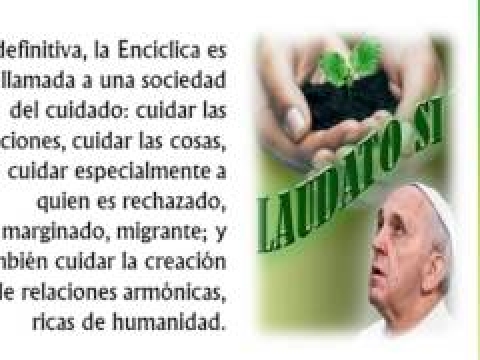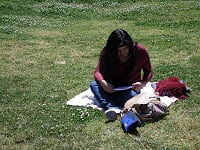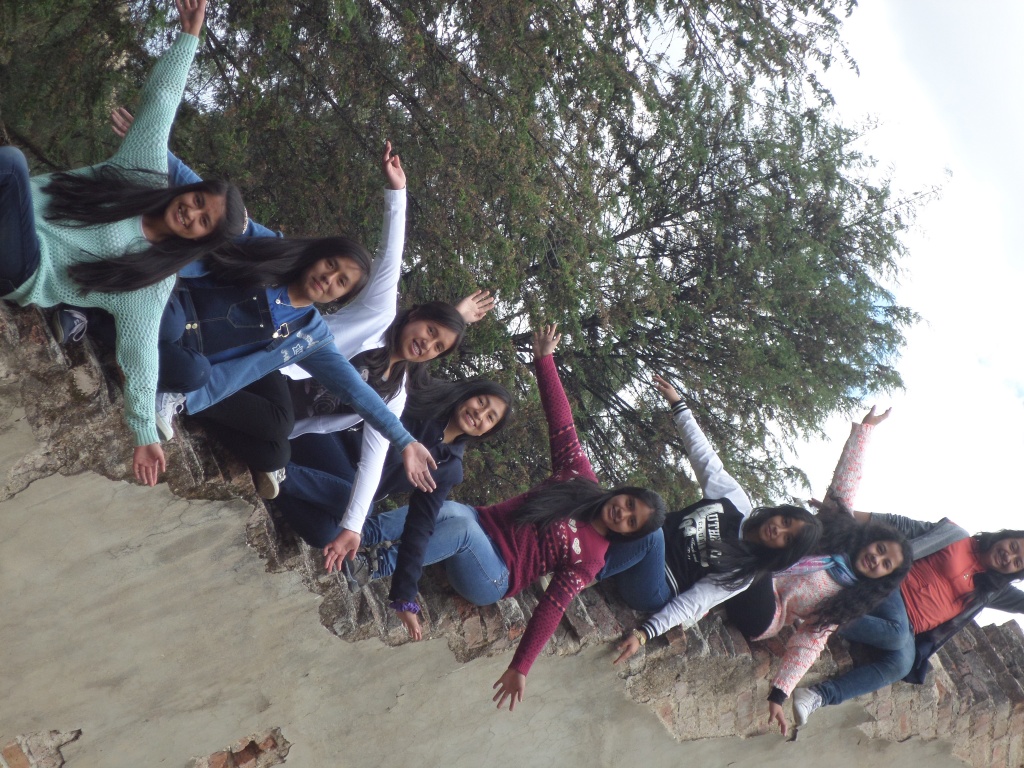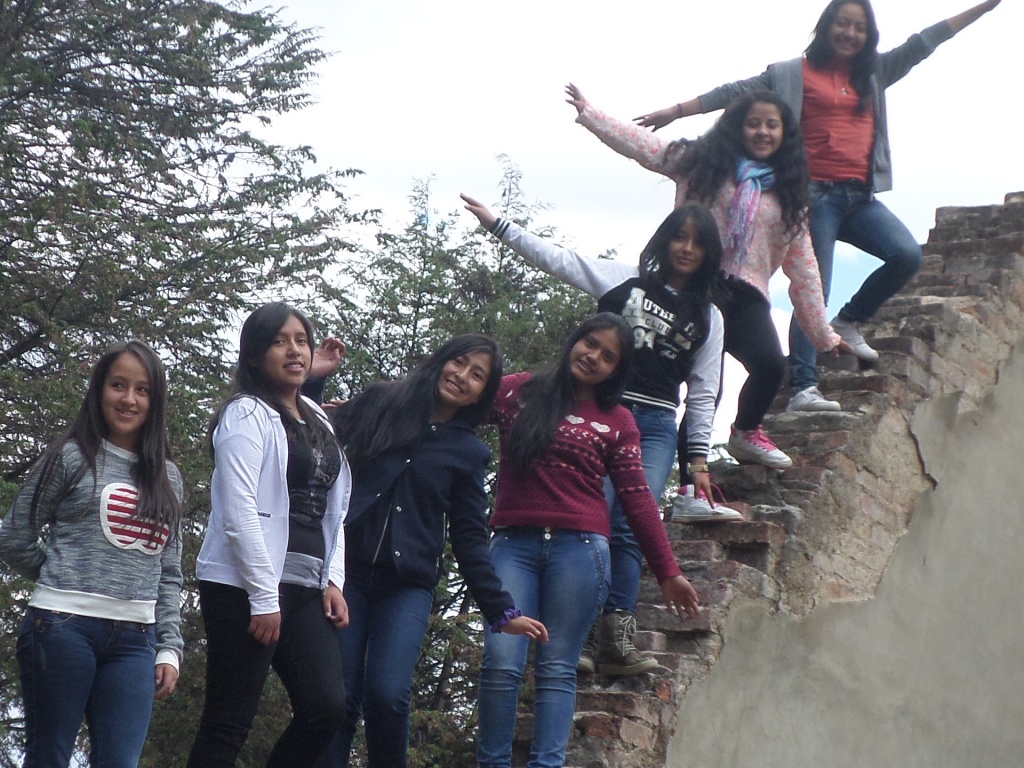Communication and Ecology / Growing in identity by respecting and caring for the common home
OVERALL OBJECTIVE:
Promote the development of citizen awareness, regional identity and social commitment that implies research in civil and religious doctrinal sources, from collaborative work, human relations and the integration of areas that generate significant learning, favoring the strengthening of Wanka identity, the care of the common home, the transformation of contexts and the improvement of the quality of life based on the encyclical Laudato SI, which contributes to the formation of good Christian and honest citizens.
SPECIFIC OBJECTIVES:
Plan the project to favor the development of different experiences and study trips. that allow us to recognize our own responsibility in strengthening the Wanka identity in relation to the care of the common home.
To promote research through the various sources of virtual and physical information, of principles that promote an improvement in the responsibility implied by the Wanka identity and that refers to the care of the common home, as well as the various areas of human coexistence .
Build in a collaborative, creative and innovative way meaningful learning proposals that promote reflection, application of strategies from ICTs, social skills and inputs on the subject of the project for the dissemination day.
Socialize the collaborative and interdisciplinary learning experience in reference to the Wanka identity and care of the common home
The interdisciplinary collaborative educommunicative project "Wanka Identity for the care of the common home" intends to promote the development of citizen awareness, dialogue and listening as a platform for meeting, regional identity and social commitment of the educational community because it is It is necessary to train social partners who first consider their personal and family space and then cover fields in nationals.
In this line, it is sought that the students form, consolidate and affirm their regional identity through the various forms and manifestations; starting in research, continuing with field work until the presentation and socialization of the pedagogical processes in the exhibition fair, all from an educommunicative perspective that guides, builds and favors teamwork from an integrative collaborative experience.
Likewise, identity is linked to caring for the human and natural ecosystem; That is why the proposal of Pope Francis in the encyclical "Laudato si" is taken into account and the intention is to "make life" and spread the proposal of caring for our social and natural environments that during these years is mistreated by various aspects.
Thus, with a personal look (identity) and an ecosystem look (balance in harmony with ecology), the formation of various capacities and the consolidation of skills and social commitment will be promoted in the young women, without neglecting the cognitive aspect that will be strengthened through research.
One of the characteristics of today's society is the immediacy in actions, which have various manifestations: Excessive use of cell phones, pressure to carry out activities, consider the end and not the means, lean towards fashion agents or for the moment, consider more valuable the object and not the person, individualistic work, superficiality in actions.
Each of these traits directly and indirectly affect the conformation of identity traits: Sometimes changing it completely, other times distorting its true essence, even forgetting the real sense of identity.
These challenges are aggravated when we recognize the consequences of individualism, isolation and self-referentiality that society projects in the consciousness of girls and young people in training.
We have around us an environment saturated, congested, polluted in various ways, forgetting that each one is responsible for the care of the Earth, our common home, and it seems that this environment should only be used for materialistic purposes.
Due to its ecological wealth, the Mantaro valley is seen as a place for walks, tourism, extraction of wealth and improper use, neglecting the custody of the ecosystems that are generated in some areas.
Huancayo, a commercial city with progressive economic growth, is experiencing a stage of excessive development without considering its consequences. Natural areas are becoming condominiums, migration of people from various places saturate the city, the growth of the automobile fleet is uncontrollable and increasingly complex, investors who only see the way to obtain profits without leaving an environmental contribution to our city.
Human relationships, interpersonal communication and the development of social skills do nothing but alienate people and make joint work impossible, as a team, the authentic challenge for respect and care for the common home passes through this terrain that in reference to what said above, it is of vital importance because it is only from a clear educommunicative intention that the service to the common good can be proposed and built together, which transforms that generates other forms of dialogue for the good of society.
All these aspects consolidate the loss of identity of the inhabitants of the Mantaro Valley and the cities that it encompasses, such as Huancayo; Likewise, a materialistic mentality and not caring for our common home is appreciated. If the problem persists, in a few years we will have a city saturated with people and without natural spaces, without water and highly polluted; It is necessary to reconsider the identity formation in the Wanka settlers so that they value the environmental and cultural wealth they possess and give them back the true essence that it hasThe experience revolves around three nodal points that act transversally throughout the entire experience, reflection, communication, shared construction of knowledge, with a view to improving identity and respecting the "common home", to This divided the proposal into workspaces:
1st and 2nd week:
APPROACH AND SYSTEMATIZATION OF THE PROJECT with all the agents involved in the proposal.
3rd, 4th and 5th week:
COLLABORATIVE INVESTIGATION: in teams of four members chosen by girls and young people by affinity, in: Encyclical Laudato Si, Books, Internet, newspapers, interviews, reprints, among others
6th, 7th, 8th week:
SYSTEMATIZATION OF INFORMATION: They prepare as a team summaries, summaries, knowledge organizers, files, that organize their findings.
9th, 10th and 11th week:
STUDY OUT: They travel on study outings to study places to collect information, through files, interviews, surveys according to the area that they have been assigned.
12th week:
COLLABORATIVE CONSOLIDATION OF INFORMATION: as a team they share the findings of the study exit experience, developing a collaborative synthesis of the experience.
13th, 14th, 15th
COLLABORATIVE PREPARATION OF PRODUCTS for socialization
They are organized to elaborate a diversity of proposals with which they will present their discoveries to the community, in this stage teamwork and the construction of knowledge around the ecological issue prevail: they use as inputs the in-depth contents and diversity of recycling material and others with which they make: puppets, models, videos, digital magazines, storytellers, poems, songs, graphics, dances, among others.
Preliminary Presentation of the Products-Exercise H. Social
Educators accompany and motivate the processes that are developed permanently, favoring the exercise of social skills, construction of knowledge and commitments acquired on the subject.
16th week
SOCIALIZATION OF PROCESSES: They prepare the presentation of the communicative and cognitive processes developed throughout the experience, evidencing significant and integrative competencies and capacities in the construction of the learning experience.
17th Week
EXPO FAIR
They show the communicative, cognitive and social processes developed throughout the experience through the products made as part of the experience.
They socialize results, make commitments on the subject, propose strategies for caring for the environment.
Experience of social skills as part of the daily educational experience.
Investigate as a team with responsibility and criticality.
Construction of team learning from the collaborative methodology.
It is related to the environment and recognizes concrete actions of respect and appreciation of the natural environment.
As a team, they develop various expressions that systematize the investigative search: stories, narrations, magazines, newspapers, models, radio programs, with the theme of identity and defense of the "common home".








